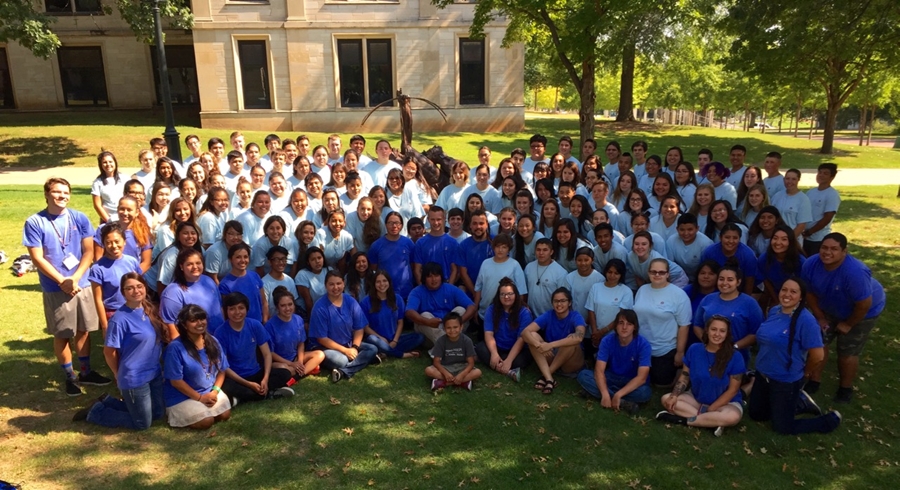
FAYETTEVILLE, Ark. — The Indigenous Food and Agriculture Initiative at the University of Arkansas School of Law welcomed 132 Native American, Alaska native and Native Hawaiian students representing 76 tribes for its Native Youth in Food and Agriculture Leadership Summit. The annual program, which kicked off its fourth summit Sunday, July 16, teaches 15-18-year-olds about the importance of vibrant food systems and how food and agriculture policy impacts tribal communities.
"The Ag Summit is helping to support Tribal governments and their communities across the country by working alongside Native youth building their dreams for improved health, economic development through food and agriculture, and sustainable local economies," said Janie Simms Hipp, director of the Indigenous Food and Agriculture Initiative.
While living on campus for 10 days, students will hear from guest speakers who present topics including the history of American Indian Agriculture, business planning, ethnobotany and seed preservation, soil conservation, legal issues in Indian Country and the importance of traditional foods.
"There should be a sense of urgency," student leader Ellise David said. "There is a new Farm Bill coming out, there are more problems in Indian Country that are bigger than us and that we need to change. And it has to start with us."
The students will also participate in the unique "This Is Hunger" exhibit, which will be installed near Fayetteville's historic downtown square July 22-26. The exhibit, sponsored by MAZON: A Jewish Response To Hunger, is visiting Fayetteville as part of a collaboration with the initiative. It will arrive during the summit, and students will visit the exhibit to understand how the food insecurity issues they confront in Native communities fit into the greater struggle for national and international food security.
Since is inception in 2014, more than 200 students have completed the program, and the number of students and number of tribes represented have grown each year. Participants receive intensive and fun instruction in agriculture while getting an early glimpse at campus life and study.
"This summit is an example of our commitment to making higher education a reality for students who might not otherwise have the opportunity to interact with faculty and leaders at a comprehensive flagship campus," said Stacy Leeds, dean of the University of Arkansas School of Law. "Consistent with our land-grant mission, we know that our pipeline programs are making a significant impact across several communities, and that's a powerful legacy for everyone involved."
The summit is sponsored by the University of Arkansas School of Law and the Dale Bumpers College of Agricultural, Food and Life Sciences. It is funded by several supporting programs including the United States Department of Agriculture Beginning Farmers and Ranchers Development Program, Farm Credit Council, Intertribal Agriculture Council, the Natural Resources Conservation Service at USDA, the Quapaw Tribe of Oklahoma and several other supporters.
Topics
Contacts
Darinda Sharp, director of communications
School of Law
479-575-7417, dsharp@uark.edu
Janie Simms Hipp, director (Chickasaw)
Indigenous Food and Agriculture Initiative
479-575-4699, jhipp@uark.edu
Bryan Pollard, communications director (Cherokee)
Indigenous Food and Agriculture Initiative
918-457-9117, bpollard@uark.edu